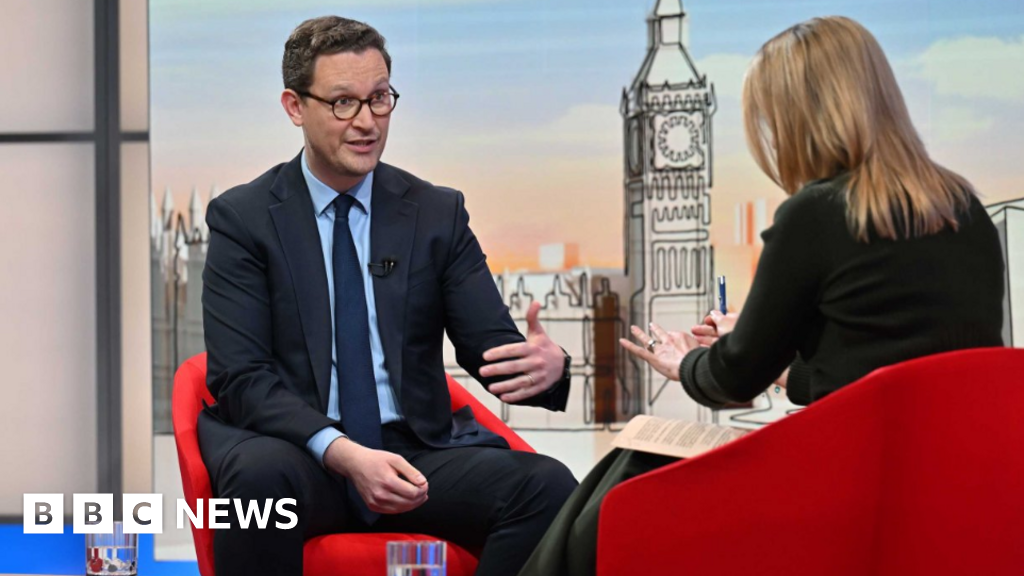Impact and Analysis of Trump's Tariffs

The global economic landscape is undergoing a seismic shift as nations grapple with the repercussions of new tariffs and trade policies. Recent developments, including President Trump's imposition of import taxes and the UK's response to these measures, signal a departure from the era of globalization as it was known for decades.
In the United Kingdom, Treasury Minister Darren Jones has asserted that globalization has "ended" following Donald Trump's new tariffs. This declaration came after Prime Minister Sir Keir Starmer hinted at state intervention to shield UK firms from the impact of the US president's trade policies. The UK, among other nations, faces a 10% "baseline" import duty, with ongoing negotiations aimed at securing a trade deal to mitigate these tariffs.
Jones emphasized the need for the UK to cultivate relationships with allies and invest in its domestic economy. He dismissed suggestions that ministers were scrambling for solutions, asserting that the government is proactively addressing these challenges by investing in the NHS, skills, and industrial policy. While Jones deferred to Sir Keir's upcoming announcement regarding the potential advancement of the spending review and industrial strategy, Conservative leader Kemi Badenoch disagreed with the notion that globalization is over, pointing to the UK's strong trading relationships with other countries.
Badenoch advocated for pursuing the trade deal that former Prime Minister Boris Johnson had attempted to negotiate with Trump, emphasizing the importance of removing tariffs to prevent disruption for UK businesses. She cautioned that the Labour government's decisions could negatively impact tax revenue and harm the public.
Meanwhile, the dollar has weakened amid concerns over a potential global trade war and a weakening U.S. labor market. Despite initial expectations that Trump's tariff plans would bolster the U.S. dollar, worries about a looming recession have overshadowed any positive effects. The ICE U.S. Dollar Index experienced a significant drop following the tariff announcement, reflecting market apprehension.
Chris Turner of ING noted that investors had anticipated tariffs to be beneficial for the dollar and detrimental to the rest of the world, but the U.S. economy's vulnerability to maximum tariffs has tempered this outlook. Kathy Kriskey of Invesco expressed hope for a "short-term pain, long-term gain" outcome from the Trump administration's economic plan but acknowledged that market confidence has been shaken.
Safe-haven currencies like the Japanese yen and Swiss franc have seen gains, while currencies tied to commodities, such as the Australian dollar, have weakened. The drop in U.S. Treasury yields and the dumping of U.S. equities by foreign investors have further contributed to the dollar's decline. However, the euro has bucked the trend, rising against the dollar amid optimism about a potential peace deal in Ukraine and increased government spending from countries like Germany.
Amol Dhargalkar of Chatham Financial suggested that companies may become more aggressive in hedging their currency risk, but the foreign exchange market's liquidity and depth should prevent major disruptions. Ken Miller of Simplify Currency Strategy ETF compared the current situation favorably to the 2008 financial crisis, noting that banks and counterparties are not at risk.
The automotive industry is particularly vulnerable to the fallout from the US president’s actions. The Institute for Public Policy Research warns that 25,000 UK jobs could be at risk. Jaguar Land Rover (JLR) has already announced a "pause" in shipments to the US as it works to "address the new trading terms".
Professor David Bailey at Birmingham Business School described the trade war as a "perfect storm" for the European and UK auto industry, which is already facing challenges such as falling sales in China and slow electric vehicle adoption. He warned that production cuts and job losses are likely, and emphasized the urgent need for the UK government to unveil its industrial strategy.
Bailey believes that JLR may struggle without US-based assembly operations, unlike German brands that are expanding their manufacturing presence in the States. He also suggested that estimates of jobs at risk in the UK auto industry are underestimated, as they do not account for potential plant closures and the impact on the supply chain.
Des Quinn of the Unite union called for transformative change to insulate the automotive industry and its workers. He emphasized the need for a level playing field in the absence of a free trade agreement to protect the industry and jobs.
Responses to the tariffs vary. Some believe that deals will be made and everything will even out, resulting in increased manufacturing and jobs in the US. Others express concern that tariffs will lead to higher consumer prices and advocate for creating a business climate that encourages companies to return to and invest in America.
In the financial markets, analysts recommend caution and strategic positioning. Preeti K. Chabra of Trade Delta advises a "sell-on-rise" strategy for Nifty, given the negative market structure. She suggests using Bear Put Spread or Bear Put Butterfly strategies to capitalize on bearish sentiment. For Bank Nifty, traders can consider Bull Call Spread or Bear Put Spread strategies, depending on their outlook.
Chabra also recommends focusing on specific names in the mid-cap and small-cap space, such as Colgate, Marico, and Max Financial Services Ltd. While the pharma sector initially saw a run-up following the tariff announcement, it experienced a sharp decline due to forthcoming announcements about severe tariffs. The PSU Bank Index is performing better than other sectors, with Bank of Baroda and SBI being tracked.
Overall, the global economy faces uncertainty as nations navigate the complexities of new tariffs and trade policies. The UK, in particular, is grappling with the potential impact on its industries, while financial markets remain volatile. Strategic hedging and careful stock selection are crucial for investors seeking to weather the storm.











